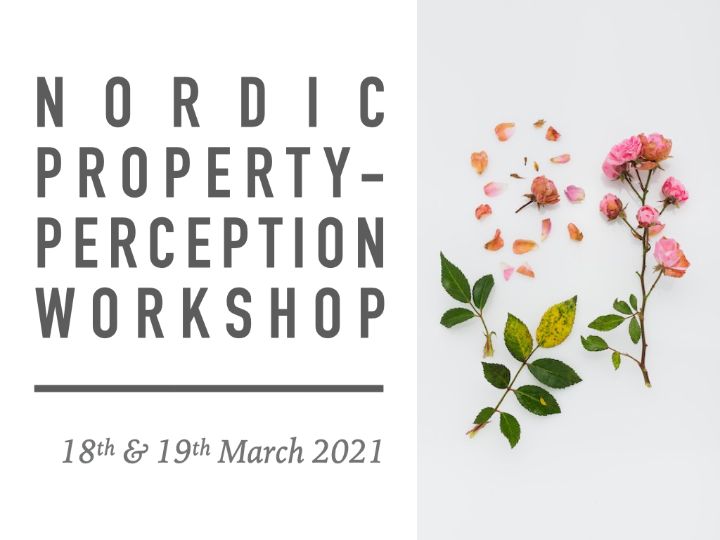The perception of sensory properties, such as colour, shape or odour, is often considered secondary or subsidiary to perception of the objects to which they belong. Recently, however, a growing body of research has started to examine various asymmetries between the metaphysics, epistemology and phenomenology of object and property perception.
A collaboration between the University of Oslo’s Perceiving Representations project and the Perceiving Properties In a World of Objects project, based at the University of Oxford, this exploratory two-day workshop aimed to start a conversation about these issues among philosophers at the Nordic universities and beyond.

The workshop took place on the 18th and 19th March 2021 via Zoom videoconferencing. In addition to attending six talks, briefly summarised below, attendees were able to question the speakers, participate in online discussion, and talk informally over ‘digital coffee’ and lunch via a series of dedicated breakout rooms.
The event was a great success, and the work presented will inform ongoing research in both projects, which are funded by the Research Council of Norway and John Fell Fund, respectively.
Day One, 18th March
- Pär Sundström from Umeå University gave a new argument for a ‘veil of abstracta’ that aimed to establish that, in an interesting sense of ‘directly aware’, we have no direct awareness of any particular individual in perception or introspection, but rather abstract qualities.
- Anders Nes (Norwegian University of Science and Technology) expressed scepticism about the perception of property-instances, or tropes such as the redness of a particular object, arguing that the phenomenological, epistemological and metaphysical considerations normally offered in favour of such perception do not apply.
- Sebastian Watzl of the University of Oslo argued that, despite the widespread philosophical orthodoxy that perceptual experiences represent external objects and their properties, supporters of this view have failed to adequately explain the constitutive connection between experiences and their contents.
Day Two, 19th March

- Roberta Locatelli from the University of Tübingen, and co-investigator on the Perceiving Properties project, presented a version of Naïve Realism according to which the qualitative character of experience consists in the obtaining of the relation of having a point of view on a scene.
- Jan Almäng (Karlstads Universitet) argued that internal relations between independent objects such as being longer than or being smaller than can only be represented by non-sensory vehicles, and so must, if they are represented at all, be a form of higher-order content.
- Kristoffer Sundberg of the University of Gothenburg defended the distinction between property illusions in which, for example, an object is seen as having a different colour than its actual colour as a result of unusual lighting or tinted lenses, and property hallucinations, in which no property-instance is in fact seen.
The full programme for the workshop including abstracts for each of the above talks can be found here. Thank you to all our speakers and attendees, and to our funders for making this event possible.
